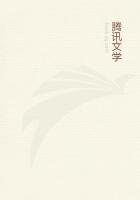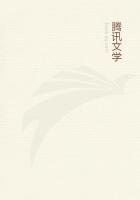Ath.That all the matters which we are now describing are commonly called by the general name of unwritten customs,and what are termed the laws of our ancestors are all of similar nature.And the reflection which lately arose in our minds,that we can neither call these things laws,nor yet leave them unmentioned,is justified;for they are the bonds of the whole state,and come in between the written laws which are or are hereafter to be laid down;they are just ancestral customs of great antiquity,which,if they are rightly ordered and made habitual,shield and preserve the previously existing written law;but if they depart from right and fall into disorder,then they are like the props of builders which slip away out of their Place and cause a universal ruin-one part drags another down,and the fair super-structure falls because the old foundations are undermined.Reflecting upon this,Cleinias,you ought to bind together the new state in every possible way,omitting nothing,whether great or small,of what are called laws or manners or pursuits,for by these means a city is bound together,and all these things are only lasting when they depend upon one another;and,therefore,we must not wonder if we find that many apparently trifling customs or usages come pouring in and lengthening out our laws.
Cle.Very true:we are disposed to agree with you.
Ath.Up to the age of three years,whether of boy or girl,if a person strictly carries out our previous regulations and makes them a principal aim,he will do much for the advantage of the young creatures.But at three,four,five,and even six years the childish nature will require sports;now is the time to get rid of self-will in him,punishing him,but not so as to disgrace him.We were saying about slaves,that we ought neither to add insult to punishment so as to anger them,nor yet to leave them unpunished lest they become self-willed;and a like rule is to be observed in the case of the free-born.Children at that age have certain natural modes of amusement which they find out for themselves when they meet.And all the children who are between the ages of three and six ought to meet at the temples the villages,the several families of a village uniting on one spot.The nurses are to see that the children behave properly and orderly-they themselves and all their companies are to be under the control of twelve matrons,one for each company,who are annually selected to inspect them from the women previously mentioned,[i.e.,the women who have authority over marriage],whom the guardians of the law appoint.These matrons shall be chosen by the women who have authority over marriage,one out of each tribe;all are to be of the same age;and let each of them,as soon as she is appointed,hold office and go to the temples every day,punishing all offenders,male or female,who are slaves or strangers,by the help of some of the public slaves;but if any citizen disputes the punishment,let her bring him before the wardens of the city;or,if there be no dispute,let her punish him herself.After the age of six years the time has arrived for the separation of the ***es-let boys live with boys,and girls in like manner with girls.Now they must begin to learn-the boys going to teachers of horsemanship and the use of the bow,the javelin,and sling,and the girls too,if they do not object,at any rate until they know how to manage these weapons,and especially how to handle heavy arms;for I may note,that the practice which now prevails is almost universally misunderstood.
Cle.In what respect?
Ath.In that the right and left hand are supposed to be by nature differently suited for our various uses of them;whereas no difference is found in the use of the feet and the lower limbs;but in the use of the hands we are,as it were,maimed by the folly of nurses and mothers;for although our several limbs are by nature balanced,we create a difference in them by bad habit.In some cases this is of no consequence,as,for example,when we hold the lyre in the left hand,and the plectrum in the right,but it is downright folly to make the same distinction in other cases.The custom of the Scythians proves our error;for they not only hold the bow from them with the left hand and draw the arrow to them with their right,but use either hand for both purposes.And there are many similar examples in charioteering and other things,from which we may learn that those who make the left side weaker than the right act contrary to nature.In the case of the plectrum,which is of horn only,and similar instruments,as I was saying,it is of no consequence,but makes a great difference,and may be of very great importance to the warrior who has to use iron weapons,bows and javelins,and the like;above all,when in heavy armour,he has to fight against heavy armour.And there is a very great difference between one who has learnt and one who has not,and between one who has been trained in gymnastic exercises and one who has not been.For as he who is perfectly skilled in the Pancratium or boxing or wrestling,is not unable to fight from his left side,and does not limp and draggle in confusion when his opponent makes him change his position,so in heavy-armed fighting,and in all other things if I am not mistaken,the like holds-he who has these double powers of attack and defence ought not in any case to leave them either unused or untrained,if he can help;and if a person had the nature of Geryon or Briareus he ought to be able with his hundred hands to throw a hundred darts.Now,the magistrates,male and female,should see to all these things,the women superintending the nursing and amusements of the children,and the men superintending their education,that all of them,boys and girls alike,may be sound hand and foot,and may not,if they can help,spoil the gifts of nature by bad habits.















